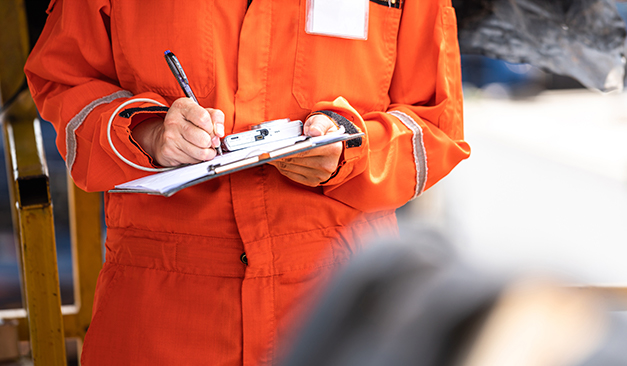8 Simple Techniques For Dementia Fall Risk
Table of Contents6 Simple Techniques For Dementia Fall RiskThe Of Dementia Fall RiskThe 6-Second Trick For Dementia Fall Risk3 Easy Facts About Dementia Fall Risk DescribedDementia Fall Risk - Truths
You may be nervous because you have actually had a loss prior to or because you've seen you're beginning to really feel unstable on your feet. You could have seen adjustments to your wellness, or just really feel like you're slowing down a little. Whatever the reason, it isn't uncommon to become careful and shed confidence, and this can quit you doing things you made use of to do and make you really feel much more separated.If you have actually had a fall or you've started to feel unstable, inform your medical professional also if you feel great or else. Your medical professional can inspect your balance and the means you stroll to see if renovations can be made. They might be able to refer you for a drops risk assessment or to the falls prevention solution.
This info can be acquired through meetings with the person, their caretakers, and a testimonial of their clinical records. Begin by asking the individual regarding their background of falls, consisting of the frequency and scenarios of any kind of current falls. Dementia Fall Risk. Ask about any movement problems they might experience, such as unstable or problem strolling
Conduct a detailed review of the individual's medications, paying specific focus to those understood to raise the risk of drops, such as sedatives or medicines that lower blood pressure. Establish if they are taking numerous medications or if there have been recent changes in their drug program. Review the person's home atmosphere for possible hazards that could increase the risk of drops, such as poor lighting, loose rugs, or absence of grab bars in the shower room.
All About Dementia Fall Risk
Guide the individual with the fall danger assessment form, clarifying each question and tape-recording their reactions properly. Make certain that the specific recognizes the function of the analysis and really feels comfy giving straightforward answers. Calculate the total danger rating based upon the actions provided in the analysis kind. Determine the person's danger category (reduced, medium, or high) based on the overall score and the existence of automatic high-risk condition aspects.
This plan may include workout programs to enhance stamina and balance, medication changes, home alterations, and referrals to other specialists as required. Consistently check the person's progress and reassess their risk of falls as required. Change the care strategy based on changes in their health standing or home environment. Offer ongoing education and support to promote security and decrease the danger of falls in their day-to-day living tasks.
Many research studies have actually revealed that physical treatment can help to lower the risk of dropping in adults ages 65 and older. In a new research study (that checked out drops risk in women ages 80 and older), researchers determined the economic impact of selecting physical therapy to avoid drops, and they found that doing so saves $2,144, consisting of all the hidden costs of your time, pain, missed life occasions, and the dollars paid for services.
Excitement About Dementia Fall Risk
Inspecting your heart price and high blood pressure dimensions at remainder and while you alter placements (from resting or existing to standing). A straightforward test of your thinking (cognitive) capacities. Assessing your balance, click over here now strength, and strolling capacity. A straightforward vision test. Analyzing your feet and shoes. A home security analysis. Based on the evaluation results, your physical specialist will develop a strategy that is tailored to your particular requirements.
Older adults who have difficulty walking and chatting at the same time are at a greater risk of dropping. Dementia Fall Risk. To help increase your security during daily activities, your physical specialist might develop a training program that will challenge you to preserve standing and strolling while you do one more job. Examples include walking or standing while counting backward, having a discussion, or bring a bag of groceries
Your physical therapist also can identify which activities you should avoid to remain risk-free. Community-based falls prevention programs assist people to: Decrease their concern of falling. Establish objectives for boosting their exercise. Make their homes safer. Work out extra to boost their stamina and equilibrium. These programs usually are led by volunteer trainers.
A Biased View of Dementia Fall Risk
.png)
Measles, or rubeola, is a highly transmittable, severe viral transmittable condition triggered by the measles infection. Some people assume of measles as simply a rash and fever that cleans up in a couple of days; however, measles can trigger serious health problems, particularly in children more youthful than 5-years-old. The most effective defense versus measles is the measles, mumps, and rubella (MMR) vaccine.
Loss are a typical reason of injury amongst older grownups.
Getting The Dementia Fall Risk To Work

She has no history of falls, her gait is stable, and she nullifies with no concerns. The previous nurse states that she calls for aid to the shower room when she requires to go.
Instances of typical loss interventions/measures consist of: Guaranteeing a client's essential things are available. Putting the patient's bed rails up with the alarm system on. Helping a client while they're standing up from bed. Past understanding exactly how to utilize the Johns Hopkins Loss Threat Assessment Device, it is essential that facilities integrate its use into a much more extensive fall prevention plan.